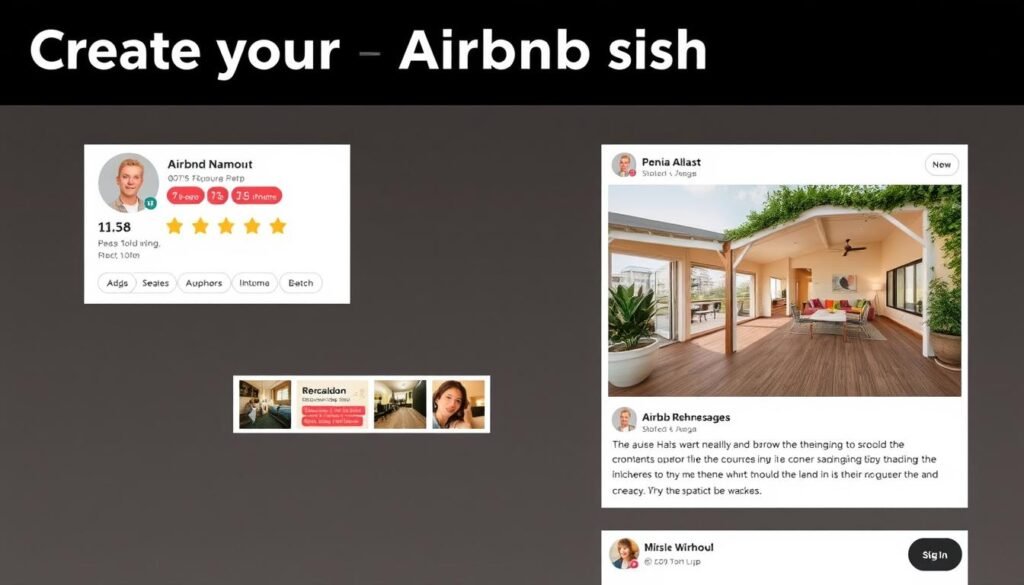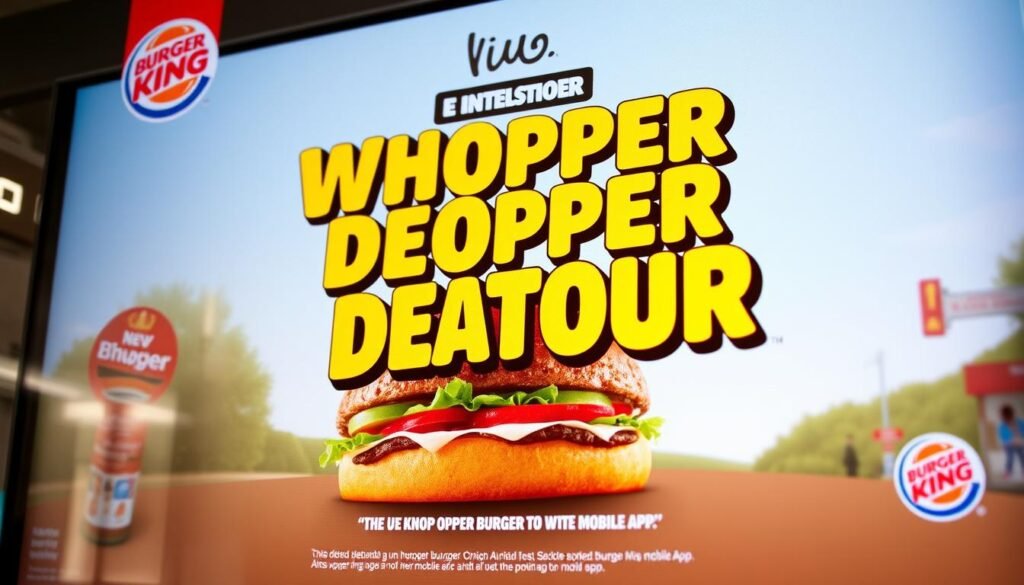In today’s fast-paced digital landscape, a successful brand presence is no longer just about having an online presence; it’s about creating a lasting impact through well-crafted digital marketing strategies. The early days of the internet have given way to a complex ecosystem where a brand’s success is heavily influenced by its ability to engage across multiple channels.
As the digital world continues to evolve, so do the strategies for effective marketing digital campaigns. It’s no longer just about producing content; it’s about combining creativity with data analysis and strategic planning to stand out in a crowded digital space.
Key Takeaways
- Understand the evolution of digital marketing to create effective campaigns.
- Learn how to combine creativity with data analysis for better results.
- Discover the importance of a multi-channel approach for brand engagement.
- Explore strategies for creating impactful digital marketing campaigns.
- Gain insights from successful brands and their digital marketing strategies.
Understanding Marketing Digital Campaigns in Today’s Landscape
In today’s fast-paced digital world, understanding the nuances of marketing digital campaigns is crucial for businesses aiming to thrive online. The digital landscape is constantly evolving, and marketing strategies must adapt to these changes to remain effective.
A digital marketing campaign is a strategic plan developed by marketers to achieve a particular goal, such as creating buzz around a product launch or building brand loyalty among consumers. There are three main steps involved in a successful digital marketing campaign: understanding the audience, creating a strategy, and executing it.
What Defines a Successful Digital Marketing Campaign
A successful digital marketing campaign is a strategic initiative designed to achieve specific business objectives through online channels. It requires careful planning and execution to resonate with your target audience. Key characteristics include being data-driven, interactive, and capable of engaging consumers across multiple touchpoints simultaneously.
- Careful planning and execution to achieve specific business objectives
- Data-driven strategies to inform decision-making
- Interactive elements to foster engagement
- Multi-channel approaches to reach a wider audience
How Digital Campaigns Differ from Traditional Marketing
Digital marketing campaigns differ significantly from traditional marketing approaches. Unlike traditional marketing, digital campaigns offer greater measurability, allowing you to track performance metrics in real-time and make necessary adjustments to optimize results. The interactive nature of digital marketing enables two-way communication with your audience, fostering deeper connections and more meaningful engagement.
Additionally, digital marketing campaigns provide businesses with greater opportunities to target specific demographic groups with tailored messaging, something that’s much harder to achieve with traditional marketing approaches. The ability to build trust through transparency is another key advantage of digital campaigns, as they allow brands to showcase their values and connect with consumers on a more personal level.
Key Elements of Effective Marketing Digital Campaigns

Effective marketing digital campaigns are built on several key elements that work together to drive results. To create a successful campaign, you need to understand your target audience, develop a clear strategy, and produce compelling content that resonates with your audience.
Audience Understanding and Targeting
Understanding your audience is crucial for creating effective digital marketing campaigns. This involves gathering data on their needs, preferences, behaviors, and pain points to create highly personalized marketing messages. Audience targeting has evolved beyond basic demographics to include psychographic data, online behavior patterns, and purchase history.
By understanding your target audience, you can create content that speaks directly to their interests and needs, driving engagement and conversion. Effective audience targeting allows you to deliver relevant messages at the right time, increasing the likelihood of achieving your campaign goals.
Strategic Planning and Goal Setting
Strategic planning is the backbone of successful digital marketing campaigns, requiring clear goal setting with specific, measurable objectives that align with your broader business aims. Your campaign goals should follow the SMART framework (Specific, Measurable, Achievable, Relevant, Time-bound) to provide direction and allow for meaningful performance evaluation.
- Define your target audience and their needs
- Develop a clear strategy and set SMART goals
- Create compelling content that resonates with your audience
- Use data-driven insights to inform your campaign decisions
Creative Content Development
Creative content development is where your campaign truly comes to life. Compelling visuals, engaging copy, and innovative formats help your brand stand out in a crowded digital space. By integrating creative content with your overall strategy, you can create cohesive experiences across all customer touchpoints.
The most effective digital marketing campaigns seamlessly integrate audience understanding, strategic planning, and creative content to drive results. By using data-driven insights to inform every aspect of your campaign, you can ensure that your decisions are based on evidence rather than assumptions.
10 Best Practices for Creating Impactful Digital Marketing Campaigns
Elevating your brand through digital marketing campaigns involves implementing a set of best practices that resonate with your target audience. In today’s digital landscape, a well-crafted campaign can make all the difference in capturing consumer attention and driving engagement.
To help you create impactful digital marketing campaigns, we’ve outlined 10 key strategies that have proven to be effective. These best practices are designed to enhance your campaign’s reach, engagement, and overall success.
1. Develop a Data-Driven Strategy
Developing a data-driven strategy is crucial for modern digital marketing campaigns. By leveraging consumer behavior patterns and insights, you can make informed decisions that drive campaign effectiveness. This approach allows you to move beyond assumptions and guesswork, instead relying on solid data to guide your marketing efforts.
2. Craft Compelling and Authentic Storytelling
Authentic storytelling is at the heart of successful digital marketing campaigns. By crafting narratives that align with your brand values and address the needs and aspirations of your customers, you can create emotional connections that resonate deeply with your audience.
3. Optimize for Multiple Platforms
With consumers using multiple devices and platforms throughout their day, it’s essential to optimize your campaigns for various channels while maintaining consistent messaging and brand identity. This ensures a seamless experience across different touchpoints.
4. Leverage User-Generated Content
User-generated content serves as powerful social proof, encouraging potential buyers to trust your brand. By encouraging customers to share their experiences with your products or services, you can build credibility and foster a sense of community.
5. Implement Personalization Techniques
Personalization has evolved beyond simply addressing customers by name. Today’s effective digital marketing campaigns use behavioral data to deliver tailored content, recommendations, and offers at the right moment in the customer journey.
6. Create Interactive Experiences
Interactive experiences, such as quizzes, polls, and augmented reality features, significantly increase engagement and time spent with your brand. These interactive elements create memorable interactions that standard passive content cannot match.
7. Utilize Video Content Effectively
Video content continues to dominate digital marketing, with various formats ranging from short-form social media clips to in-depth tutorials. Incorporating different video types can help engage different audience segments at various stages of the buying process.
8. Incorporate Social Responsibility
Incorporating social responsibility into your campaigns can resonate with today’s conscious consumers. An authentic commitment to causes aligned with your brand values can differentiate you from competitors and build deeper customer loyalty.
9. Measure and Analyze Performance
Regularly measuring and analyzing campaign performance allows you to identify what’s working and what isn’t. This data-driven approach enables optimization that improves results over time.
10. Stay Agile and Adaptable
Staying agile and adaptable is crucial in the fast-changing digital landscape. Be prepared to pivot your strategy based on performance data, emerging trends, or unexpected market shifts to ensure continued success.
7 Inspiring Marketing Digital Campaigns to Learn From
Let’s dive into seven inspiring marketing digital campaigns that have made a significant impact. These campaigns showcase innovative strategies and successful execution in the ever-evolving landscape of digital marketing.
Nike’s “Just Do It” Campaign

Nike’s iconic “Just Do It” campaign has transcended mere advertising to become a cultural phenomenon. This powerful and consistent message has built brand identity over decades while continuously evolving to stay relevant. The campaign’s success can be attributed to its ability to inspire and motivate consumers, creating a strong emotional connection with the brand.
By leveraging storytelling and partnering with influential athletes, Nike has maintained a strong brand presence across various digital platforms.
Coca-Cola’s “Share a Coke” Personalization

Coca-Cola’s “Share a Coke” personalization campaign brilliantly leveraged the emotional impact of seeing your own name on a product. This campaign created an instant personal connection that drove both sales and social media sharing. By replacing the brand name with popular names, Coca-Cola encouraged consumers to share their personalized bottles on social media, generating significant user-generated content.
Old Spice’s “The Man Your Man Could Smell Like”

Old Spice revolutionized brand personality with “The Man Your Man Could Smell Like,” using humor and absurdity to transform a dated brand into a social media powerhouse. The campaign’s viral success was driven by its engaging content and interactive elements, such as responding to consumer comments on social media.
Airbnb’s User-Generated Content Strategy

Airbnb’s user-generated content strategy showcases the authentic experiences of real travelers, building trust through genuine customer stories rather than polished corporate messaging. By featuring real users and their experiences, Airbnb creates a sense of community and social proof, driving engagement and conversions.
Always’ “#LikeAGirl” Social Impact Campaign

Always’ “#LikeAGirl” campaign demonstrated how addressing important social issues can create meaningful impact while strengthening brand perception. By turning a negative phrase into an empowering movement, Always generated significant social media engagement and brand loyalty.
Burger King’s “Whopper Detour” Geolocation Campaign

Burger King’s innovative “Whopper Detour” campaign used geolocation technology to drive app downloads by offering one-cent Whoppers to customers who were physically near a McDonald’s. This campaign showcased how digital technology can create playful competitive advantages, driving engagement and sales.
Oreo’s Real-Time Marketing Success

Oreo’s real-time marketing during the 2013 Super Bowl power outage with their “You can still dunk in the dark” tweet showcased the power of agility and quick thinking in digital marketing. By responding rapidly to a timely event, Oreo generated massive engagement with minimal production costs.
These successful campaigns share common elements: they understand their audience deeply, deliver authentic messages that resonate emotionally, and leverage the unique capabilities of digital platforms to create experiences that wouldn’t be possible through traditional marketing channels.
Digital Marketing Campaign Tools and Platforms
Choosing the right combination of digital marketing tools and platforms is crucial for campaign efficiency. The right tools enable your team to create, manage, and optimize content across multiple channels simultaneously, thereby enhancing overall campaign performance.
Social Media Marketing Platforms
Social media marketing platforms like Facebook Business Suite, Twitter Ads, LinkedIn Campaign Manager, and TikTok For Business offer sophisticated targeting options that help you reach specific audience segments with tailored messaging.
Each social platform has unique strengths – Instagram excels at visual storytelling, LinkedIn targets professional audiences, TikTok reaches younger demographics with short-form video, and Twitter enables real-time engagement with trending topics.

Content Creation and Management Tools
Content creation and management tools like Canva, Adobe Creative Suite, and Hootsuite streamline the production and scheduling of campaign assets, ensuring consistent quality and timely delivery across all channels.
Email marketing platforms such as Mailchimp, Constant Contact, and HubSpot allow you to segment your audience and deliver personalized content based on user behavior, significantly improving engagement rates.

Analytics and Performance Tracking Solutions
Analytics and performance tracking solutions like Google Analytics, SEMrush, and platform-specific insights tools provide crucial data about campaign performance, helping you understand what’s working and what needs adjustment.
Customer relationship management (CRM) systems integrate with your marketing tools to track the entire customer journey, connecting marketing activities to actual sales outcomes and providing a complete view of ROI.
For more insights on leveraging AI in marketing, visit https://www.marketermilk.com/blog/ai-marketing-tools. To understand the role of web hosting in website performance monitoring, check out https://seize1.online/the-role-of-web-hosting-in-website-performance-monitoring/.

Common Challenges in Marketing Digital Campaigns and How to Overcome Them

The digital landscape is constantly evolving, presenting marketers with a unique set of challenges that require creative solutions. As you navigate the complex world of digital marketing, you’re likely to encounter several obstacles that can impact the success of your campaigns.
To succeed, every competent B2C and B2B digital marketing agency must navigate these challenges carefully and creatively to deliver effective campaigns. Here are some of the most common challenges and strategies to overcome them:
Budget Constraints and Resource Allocation
Budget constraints are a reality for most marketing teams. To overcome this, prioritize channels with the highest ROI for your specific business and leverage cost-effective tactics like content marketing and organic social media.
- Focus on quality over quantity when resources are limited.
- A few exceptional pieces of content or highly targeted campaigns often outperform numerous mediocre efforts.
Standing Out in a Crowded Digital Space
Standing out in today’s crowded digital space requires genuine creativity and a willingness to take calculated risks. Study your competitors to understand their strategies, then look for opportunities to differentiate your brand through unique messaging or innovative formats.
Maintaining Brand Consistency Across Channels
Maintaining brand consistency across multiple channels while optimizing content for each platform’s unique requirements is a delicate balance. Develop clear brand guidelines that allow for flexibility while preserving your core identity elements.
- Ensure that your brand’s message is consistent across all marketing channels.
- Optimize content for each platform to maximize engagement.
- Regularly review and update your brand guidelines to reflect changes in the market.
By understanding these common challenges and implementing strategies to overcome them, you can improve the effectiveness of your digital marketing campaigns and achieve your marketing goals.
Future Trends in Marketing Digital Campaigns
Future trends in marketing digital campaigns promise to transform the industry, driven by advancements in AI, immersive technologies, and privacy-focused strategies. As technology continues to evolve, marketers must stay ahead of the curve to create impactful digital marketing campaigns.
The integration of artificial intelligence (AI) and machine learning is revolutionizing digital marketing by enabling more sophisticated audience targeting and content personalization. AI-powered tools are increasingly handling routine campaign management tasks, freeing marketing teams to focus on strategy and creative development.
AI and Automation in Campaign Management
AI and automation are significantly enhancing the efficiency and effectiveness of digital marketing campaigns. By leveraging AI, marketers can anticipate customer needs before they’re expressed, thanks to predictive analytics. This proactive approach allows for more targeted and personalized marketing efforts.
- AI-powered tools are handling tasks like A/B testing, budget allocation, and bid management.
- Predictive analytics anticipate customer needs, enabling proactive marketing strategies.
- Personalization is taken to the next level with AI-driven content recommendations.
Immersive Technologies in Marketing
Immersive technologies, such as augmented reality (AR) and virtual reality (VR), are creating new ways for customers to experience products before purchase. This is particularly valuable for industries like fashion, home décor, and automotive.
For instance, AR can be used to allow customers to virtually try on clothes or see how furniture would look in their home. This not only enhances the customer experience but also reduces the likelihood of returns.
Privacy-First Marketing Approaches
The growing emphasis on data privacy is driving a shift toward “privacy-first” marketing approaches. These strategies respect user preferences while delivering personalized experiences through transparent data collection and usage.
As third-party cookies phase out, first-party data strategies will become crucial. Brands that build direct relationships with customers and collect their own data will have a significant advantage in future digital marketing campaigns.
By focusing on transparency and user consent, marketers can build trust with their audience and create more effective, privacy-respecting digital marketing campaigns.
Conclusion: Elevating Your Brand Through Strategic Digital Campaigns
In the ever-evolving world of digital marketing, staying ahead of the curve means developing campaigns that resonate with your audience and drive meaningful results. Creating a successful digital marketing campaign requires creativity, strategy, and an understanding of your audience.
The marketing digital campaigns we’ve discussed, from Nike’s iconic “Just Do It” to Airbnb’s nostalgic Barbie Malibu DreamHouse, prove that connecting with people on a personal level can lead to massive success. Effective marketing campaigns are no longer optional but essential for brand growth in today’s connected world.
To achieve marketing success, focus on developing a cohesive strategy that incorporates deep audience understanding, authentic messaging, and continuous optimization. Remember that even small businesses with limited resources can create impactful digital marketing campaigns by focusing on their unique strengths and being agile.
By applying the best practices and strategies outlined in this article, you’ll be well-equipped to elevate your brand through strategic digital campaigns that drive meaningful business results in an increasingly competitive marketplace. Stay curious, experiment with new approaches, and be willing to adapt based on performance data and emerging trends.
